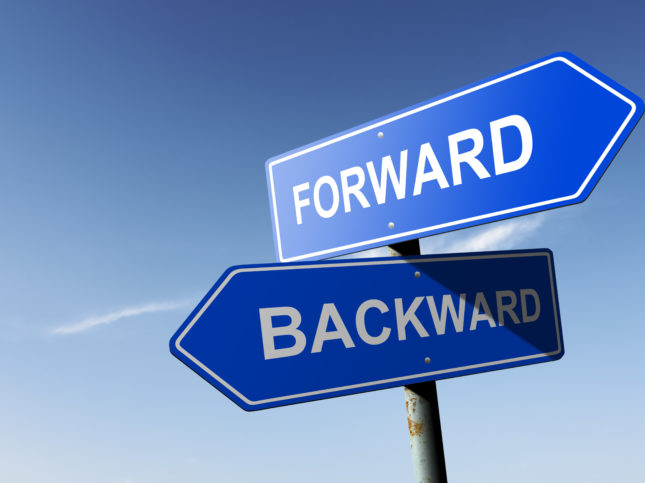What Makes A Sales Presentation STRATEGIC?
Of the many thousands of sales presentations delivered daily, only a select few rise to the level of STRATEGIC sales presentations. What’s the difference?
Strategic sales presentations fit the following profile:
Game changers: Ordinary presentations are fine for ordinary decisions, such as renewing a contract with an existing supplier. Strategic presentations require important decisions, such as changing the way the customer does business to respond to fresh challenges, opportunities, or risks.
New insights: One way to make a presentation “game-changing” is for the salesperson to bring new insights to the client, perhaps about a problem they don’t realize they have. They challenge the client’s view of the world, and this requires a lot of research, and, yes, courage.
Impact: The impact of decisions made as the result of a strategic sales presentation is usually huge from a financial, strategic and even personal point of view. For the client, this means that many different units or functions are involved, which means that the message has to appeal to a wider range of interests. For the salesperson, the outcome may mean the difference between a successful year or a bust.
Unique: Ordinary presentations are usually canned scripts that use off-the-shelf slides and apply to everyone. They practically scream: “to whom it may concern.” Strategic presentations are unique to those people in the room at that particular time, for their particular situation.
Strategic context: Strategic presentations are not stand-alone events that can be plugged in whenever the client agrees to meet with you. They are an integral element of the salesperson’s account or opportunity plan, and therefore they have a clear purpose and intended outcome for the seller and the buyer.
Shaping the conditions: Because they are part of an ongoing strategy, what the salesperson does before the presentation to shape the conditions for success is at least as important as what he or she says and does during the presentation.





Martin, I definitely agree that not all sales interactions or presentations are strategic. And it’s also true that most of them will involve someone who is very highly placed in the company. Yet, sometimes the big ideas can come from the man on the floor, especially since sometimes they may be closer to the problem than anyone else. In addition, sometimes they are the folks you have to go to before the big presentation, so that you can have an eyewitness view of the situation. It can also depend on the culture, whether it’s national culture or corporate culture. For example, the Japanese process of nemawashi, which basically means going around the roots to lay the groundwork.
Hi Jack,
I’m not sure you can or should make all sales interactions strategic
I think it depends on who you are interacting with – the higher the person you are talking to is placed (executive) in the respective company the more strategic you can be and have to be
Eg in my opinion it makes no sence trying to create a strategic focus with “the man on the floor” – He ofte has no empowerment to make strategic decisions and the meeting will be wasted – be operational instead making your way to the decisionmaker
What do you think of that?
Looking forward to read more
/Martin
Hi Shannon,
It’s great to hear from you. I have two ideas for you. In my book, Strategic Sales Presentations, I cover the importance of distilling your message down to a clear theme and then building from there. But another excellent resource is Mike Weinberg’s book, New Sales.Simplified. In it, he shows how to craft a sales story that succinctly tells others who benefits from your offering, and what makes you different. If you take what Weinberg says in his book, and tie it to something unique about your prospect that you gleaned from research, you should be able to quickly craft and deliver powerful compelling elevator pitches. I hope this helps.
Dear Jack,
It’s been a long time but I’ve NEVER forgotten your networking insights I learned from you years ago (introduction at Abbott by John Spence)! In fact, I think of that networking lesson almost daily. One topic that recently arose is the importance of the 1-2 min “elevator pitch” for investors and high level individuals. Do you have any good resource ideas for where I could turn to learn more about what content to concentrate on for those? Appreciate any insights and best wishes! I hope our paths cross soon.
Best regards,
Shannon Matwiyoff
Great perspective Jack. A couple of thoughts:
1. Too often, we lose sight of the ultimate objective of any interaction with the customer—it’s helping the customer achieve outcomes, results. So, I would tend to add a perspective that each strategic presentation has to always focus on outcomes or results the customer is trying to achieve. Without this, it’s just talk.
2. Without meaning to be nasty, shouldn’t every presentation be “strategic.” First, “strategic” has different meanings–from a sales point of view, we tend to think of those important “C-Level” presentations, those done in the board room, those we prepare and rehearse and nail.
But from a customer point of view, whatever their level, they don’t want their time wasted. So each presentation has to be impactful to them and what concerns them. The meaning of strategic changes with the person or group you are trying to address. At the C-Level, it may be profound changes in their business strategy, at a functional level it may be process improvement or workflow improvement, at an individual level, it may be…… When preparing for the “strategic” presentation at whatever level, we should test what we are presenting against the criteria you outline. Then we assure we maximize the impact on the audience, consequently the value we create.
Great post. Regards, Dave